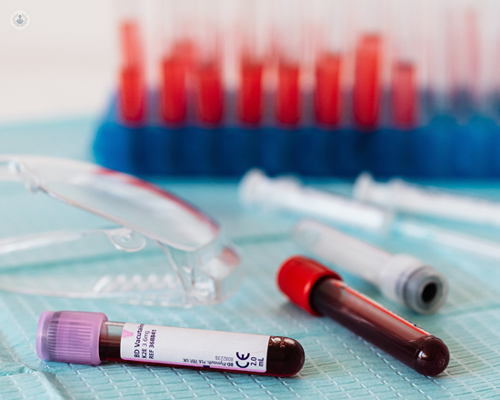Hepatitis C
Hepatitis C is a viral infection that affects the liver.

Here's a structured guide to understanding Hepatitis C:
What is being analysed?
The analysis for Hepatitis C involves testing for the presence of the Hepatitis C virus (HCV) in the blood.
How is it used?
Hepatitis C testing is used to diagnose Hepatitis C infection and monitor the effectiveness of treatment.
Why perform the analysis?
The analysis is performed to identify Hepatitis C infection, which, if left untreated, can lead to liver damage, cirrhosis, and other serious complications.
When to perform the analysis?
Hepatitis C testing is recommended for individuals at risk of Hepatitis C infection, including those who have a history of intravenous drug use, received blood transfusions before 1992, or have had unprotected sex with multiple partners.
What sample is required?
A blood sample is required for Hepatitis C testing.
Is any prior preparation necessary?
No specific preparation is usually necessary for Hepatitis C testing.
What are the normal values?
The normal result for Hepatitis C testing is a non-reactive or negative result, indicating the absence of Hepatitis C virus in the blood.
What do altered values mean?
| Parameter | Normal range |
| Hepatitis C test result | Non-reactive (negative) |
Reactive or positive results indicate the presence of Hepatitis C virus in the blood, suggesting an active infection. Further evaluation and monitoring are necessary to determine the extent of liver damage and the appropriate treatment plan.
In conclusion, Hepatitis C testing is essential for early detection and management of Hepatitis C infection. If you suspect you may have been exposed to Hepatitis C or if you have risk factors for the infection, consult with your healthcare provider for testing and appropriate care.